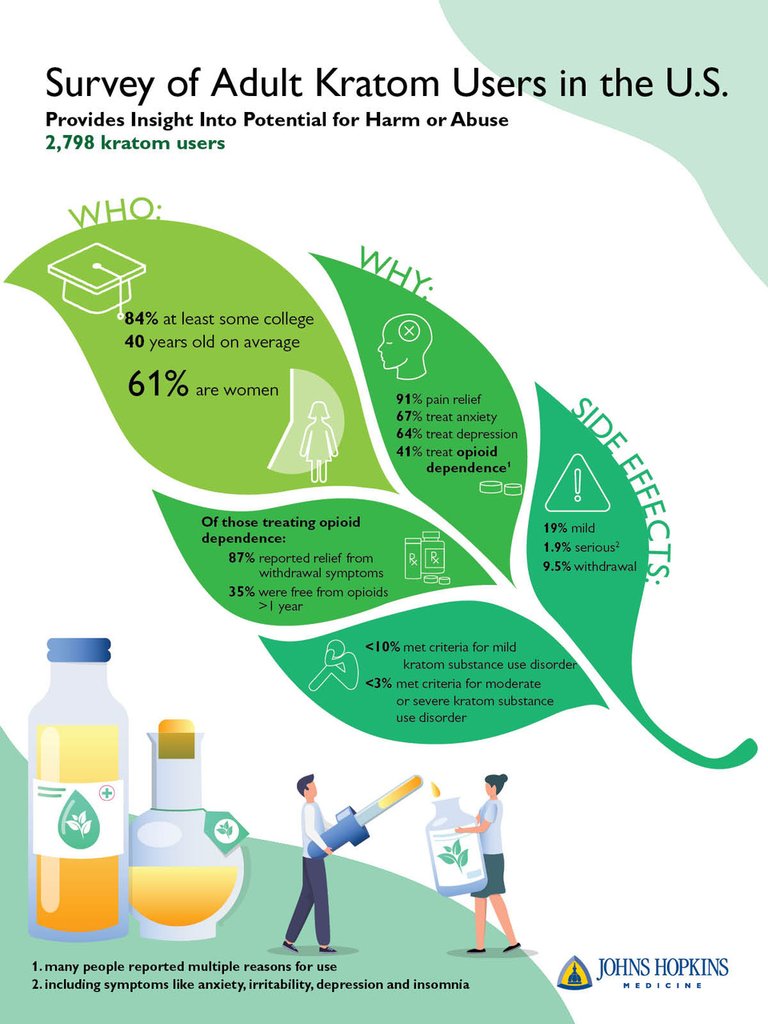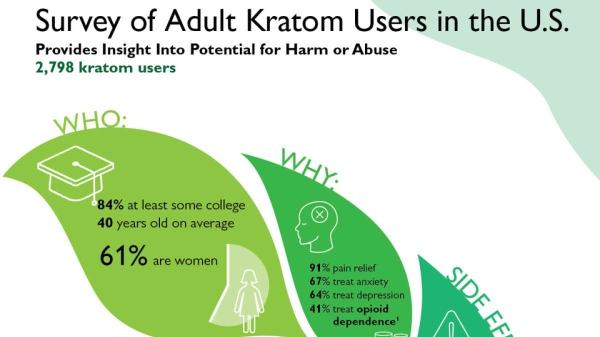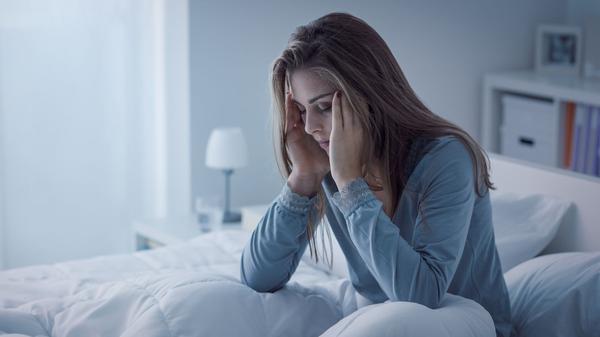According to a new Kratom study by Johns Hopkins Medicine, 2,700 users of Kratom likely has a lower rate of harm than prescription opioids for treating pain, anxiety, depression and addiction.
The study was conducted with 2,700 self-reported users of Kratom. Of the Kratom user participants, 91% took Kratom to alleviate pain, 67% for anxiety and 65% for depression. 47% of Kratom users took Kratom for opioid withdrawal.

The Kratom study also found that Kratom side effects were varied. 33% of Kratom users reported mild side effects from Kratom such as constipation, upset stomach or lethargy. These side effects resolved within a day and are the more common side effects we have listed in our Kratom usage section. Fewer than 10% of Kratom users reported notable Kratom withdrawal symptoms and less than 2% reported any sever side effects such as anxiety, irritability, depression or insomnia when the Kratom wore off.
Albert Garcia-Romeu, Ph.D and instructor of psychiatry and behavioral sciences at Johns Hopkins University School of Medicine said, “Both prescription and illicit opioids carry the risk of lethal overdose as evidenced by the more than 47,000 opioid overdose deaths in the U.S. in 2017. Notably there’s been fewer than 100 kratom-related deaths reported in a comparable period, and most of these involved mixing with other drugs or in combination with preexisting health conditions.”
As Kratom becomes more popular with people treating chronic pain, anxiety, depression and other conditions, Kratom studies will help provide various regulations and suggestions that Kratom users can utilize for a safe and more effective experience.
You can read more about the John Hopkins Medicine Kratom Study here. You can also view more information on the WSC Natural Healings blog for Kratom Safety and Caution, Kratom Benefits & Side Effects, How To Take Kratom, Kratom Purity & Testing and Testimonials from WSC Kratom customers.
 Contact us
Contact us









